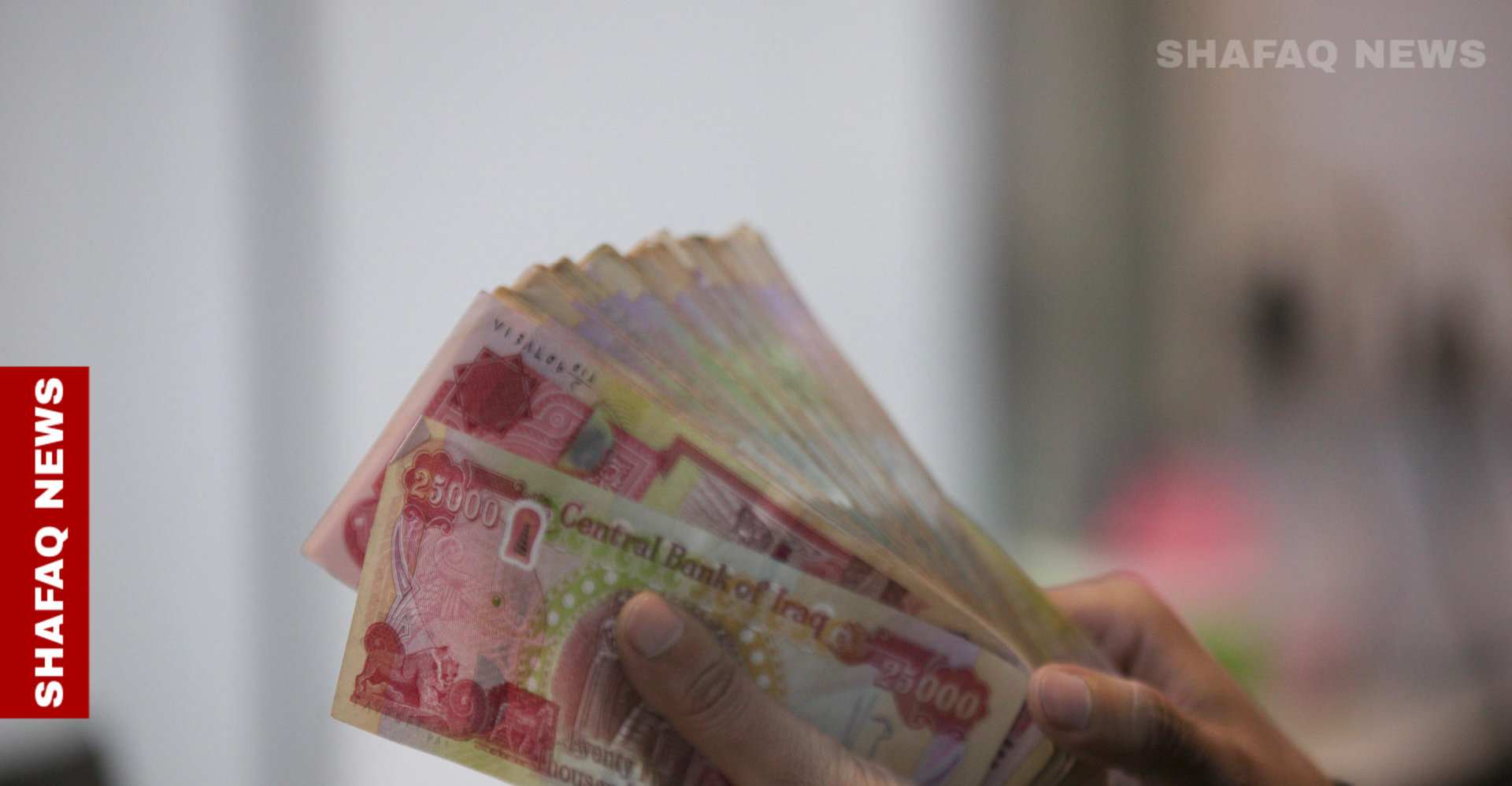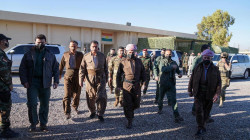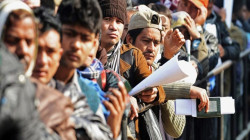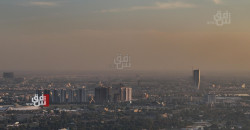Iraq's budget in limbo: Funding woes and oil risks grow

Shafaq News/ Iraq’s 2023–2025 budget, approved in June 2023, is the largest in the country’s history, allocating around 198.9 trillion dinars ($153 billion) annually. With a focus on infrastructure development, public sector salaries, and fostering economic growth, the budget promises to play a pivotal role in shaping Iraq’s future.
The Kurdistan Region is set to receive 12.67% of the total budget, amounting to over $12 billion annually. With oil prices projected at $70 per barrel, Iraq expects oil revenues to reach approximately 117 trillion dinars each year.
However, despite the budget's expansive scope, its implementation has faced significant obstacles. What was intended to be a smooth, multi-year framework has, instead, transformed into a series of annual plans, delaying progress and creating uncertainty.
Still, the government remains committed to ensuring economic stability.
Implementation Hurdles
Mudher Mohammed Saleh, financial adviser to Prime Minister Mohammed Shia Al-Sudani, reaffirmed that the 2025 budget is legally grounded under Law No. 13 of 2023, which mandates a three-year spending plan.
Saleh acknowledged delays in allocations but emphasized that 90% of Iraq’s financial operations remain unaffected, stating, "The financial and economic situation is stable, with a high degree of certainty." He underscored the close collaboration between legislative and executive authorities.
Nevertheless, slow disbursements have raised concerns. Moein Al-Kadhimi, a member of the Parliament’s finance committee, warned that delays in finalizing both operational and investment budgets could harm market liquidity, hinder businesses, and stifle economic growth. “The key issue isn’t just a budget approval, it’s funding,” Al-Kadhimi remarked.
Although the 2024 budget is in place, funding for regional development and ministries remains stalled, delaying new projects.
Al-Kadhimi projected total revenue from oil and non-oil sources at no more than 140 trillion dinars ($107 billion). He also called for a cap on allocations at 150 trillion dinars—127 trillion for operations and 23 trillion for investments—to preserve fiscal stability.
The Crude Calculation
Iraq’s heavy reliance on oil revenues continues to strain the country’s finances. The 2023 budget projected oil exports at 3.5 million barrels per day at $70 per barrel.
However, actual exports fell to 3.2 million barrels per day, creating a 3 trillion dinar ($2.3 billion) gap. This shortfall has compounded the financial pressure, with oil prices fluctuating between $60 and $80 per barrel.
Ahmed al-Jassim, a financial analyst, pointed out, "Oil prices, the backbone of Iraq’s budget, remain highly volatile. The government faces mounting pressure to manage expenditures carefully."
Looking ahead to 2025, Iraq anticipates a budget deficit of 64 trillion dinars ($48 billion), the same as in 2023 and 2024. While total budget allocations have risen from 198 trillion dinars to 211 trillion dinars, the persistent shortfall raises concerns about the need for increased borrowing, potentially draining foreign reserves and destabilizing the economy.
Former Prime Minister Mustafa al-Kadhimi stressed the importance of diversifying Iraq’s revenue sources to mitigate these risks.
With oil prices potentially falling to $60 per barrel, he emphasized the need to boost non-oil revenues through customs duties, taxes, telecom revenues, utility fees, and state property income.
"Current non-oil revenues are below 15 trillion dinars but should reach at least 30 trillion," al-Kadhimi asserted.
Despite these challenges, al-Kadhimi remains optimistic. As long as Iraq maintains an export rate of 3.5 million barrels per day, liquidity should remain intact, with a funding ceiling of 50 trillion dinars.
However, without significant reforms or a reduction in the deficit, Iraq risks excessive borrowing and depletion of foreign reserves, endangering long-term financial stability.
Baghdad-KRG Rift
The budget delays have been primarily driven by a long-standing dispute between Baghdad and the Kurdistan Regional Government (KRG).
Abdul-Hassan Al-Ziyadi, an economic expert, highlighted the inefficiency of Iraq’s budgeting process, which often extends for months, sometimes even a full year. "This uncertainty ripples across both public and private sectors, making strategic planning nearly impossible."
At the heart of the deadlock is a revision to Article 12, Section (C), which recalculates the cost of producing and transporting crude oil from the Kurdistan Region. Initially set at $10 per barrel, the cost was raised to $16, sparking disputes that have delayed the 2025 budget submission.
The conflict also reflects deeper political and economic rifts. The KRG insists on maintaining control over its oil revenues, a right it claims is enshrined in Iraq’s Constitution. However, Baghdad argues for central oversight, citing the national importance of oil revenues.
A key point of contention is Article 14 (7), which allows Baghdad to allocate funds directly to KRG provincial governments if the regional administration fails to distribute them fairly.
The Kurdistan Democratic Party (KDP) opposes this provision, with spokesperson Shaswar Abdulwahid describing it as “an unconstitutional power grab” that undermines the Kurdistan Region’s authority over its own resources. Baghdad, however, argues that the measure ensures equitable distribution of resources across Iraq.
Compounding the crisis is the KRG’s growing financial strain, exacerbated by the suspension of its independent oil exports through Turkiye.
Since March 2023, a dispute between Baghdad and Ankara over the legality of Kurdish oil exports has shut down the Ceyhan pipeline, severing the region’s primary revenue stream.
The resulting losses, estimated at $5 billion, have made it increasingly difficult for the KRG to meet its financial obligations, including salary payments.
Late Is Better Than Never
An official source revealed to Shafaq News that Iraq is preparing to submit its final 2025 budget to Parliament in the coming days.
The finalized budget is expected to be delivered either after the Eid al-Fitr holiday on March 31st or by mid-April for legal review. This schedule aligns with the government’s financial priorities and requirements.
The 2025 budget, projected at around $200 billion, faces a significant deficit. This gap is primarily due to a sharp decline in Iraq’s strategic reserves of gold and foreign currency, as well as liquidity shortages.
Furthermore, the government’s ongoing commitment to large-scale projects requiring substantial funding has put additional strain on Iraq’s finances.
As a result, the operational budget will see reductions, and the pace of government service projects will slow.
Sectors under Siege
Public Service Strain
The budget crisis has had far-reaching consequences, particularly in the public services sector. Disruptions in funding have left healthcare, education, and social programs in limbo, directly affecting millions of Iraqis who rely on government services.
Manar Al-Abidi, executive director of the Iraq Future Foundation, noted, "Each delay not only disrupts contractors and businesses but directly affects citizens. From hospitals to schools, funding interruptions have stalled essential services, straining the systems people depend on."
According to the Ministry of Planning, up to 30% of essential public services have been affected.
Salary delays for 2.5 million government employees, including teachers and doctors, have fuelled public frustration, while pensioners continue to struggle with delayed payments.
The Ministry of Health has warned that 60% of public hospitals are running low on essential medical supplies, forcing patients to seek private care.
Meanwhile, more than 7,000 schools have had operations delayed, impacting 2.8 million students and raising concerns about Iraq’s long-term educational prospects.
Economic researcher Ahmed Eid described the situation as a “major crisis” that could upend Iraq’s economic stability.
"A budget isn’t just a financial document, it’s the backbone of economic growth, job creation, and financial security," Eid emphasized.
He warned that continued delays risk stalling progress, scaring off investors, and weakening market confidence.
Private Sector Struggles
The private sector is also feeling the strain. The Ministry of Planning reports that 42% of key development projects planned for 2024, worth more than $12 billion, have been put on hold. This is particularly evident in the construction sector, where activity has dropped by 20% due to the suspension of government contracts.
Businesses dependent on public sector spending are also facing mounting challenges. "This delay is fuelling economic uncertainty," Eid cautioned. "Companies are hesitating to invest, and hiring freezes are spreading across industries."
The Federation of Iraqi Industries has reported that 35% of small and medium-sized enterprises have experienced declining revenues, while private sector employment has shrunk by 8% in the first quarter of 2024.
As the budget impasse continues, experts are urging a swift resolution. "The budget is not just about numbers—it’s about Iraq’s future," Eid concluded.
"It’s crucial that the government prioritize public interests over political bargaining to safeguard the country’s economic future."





